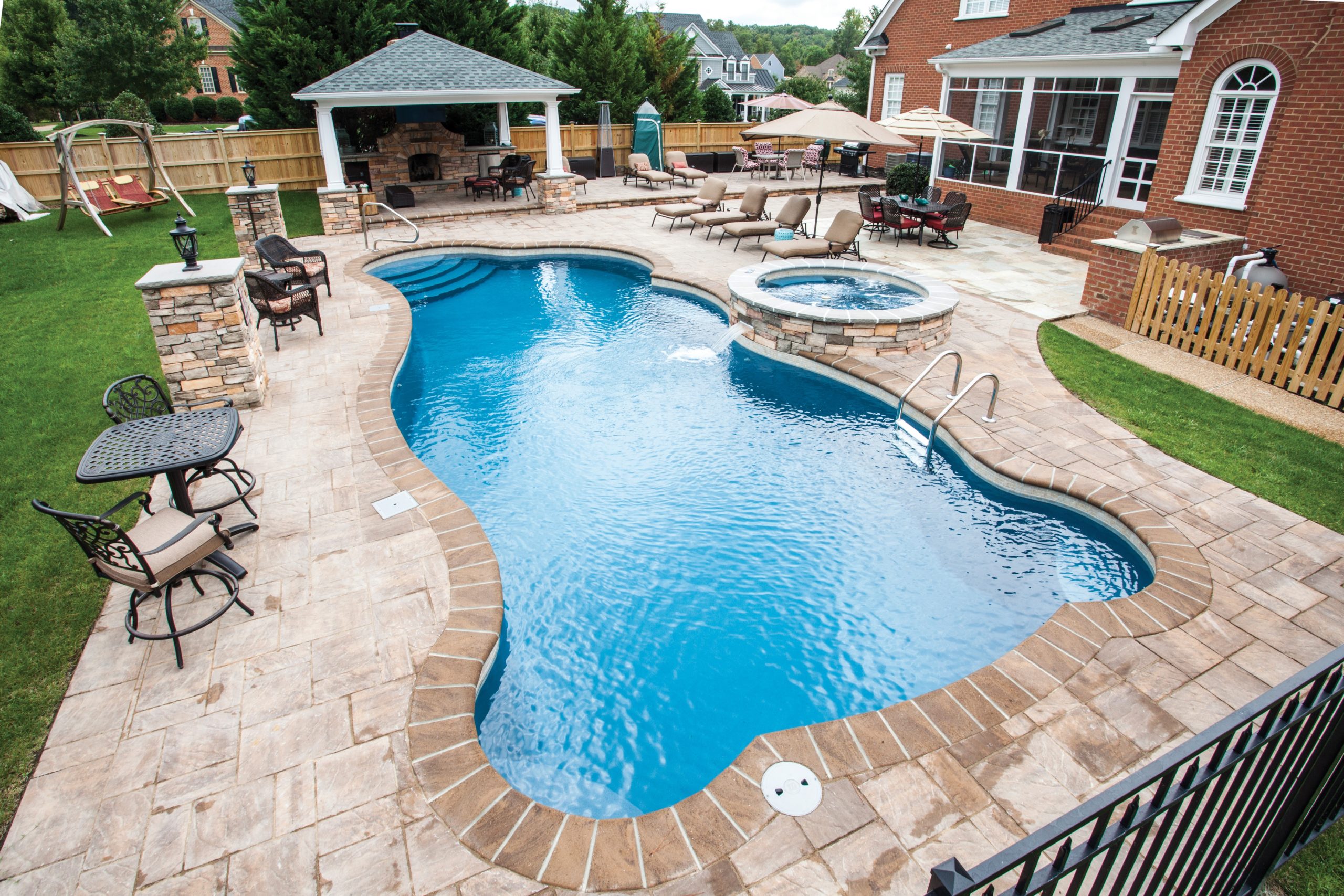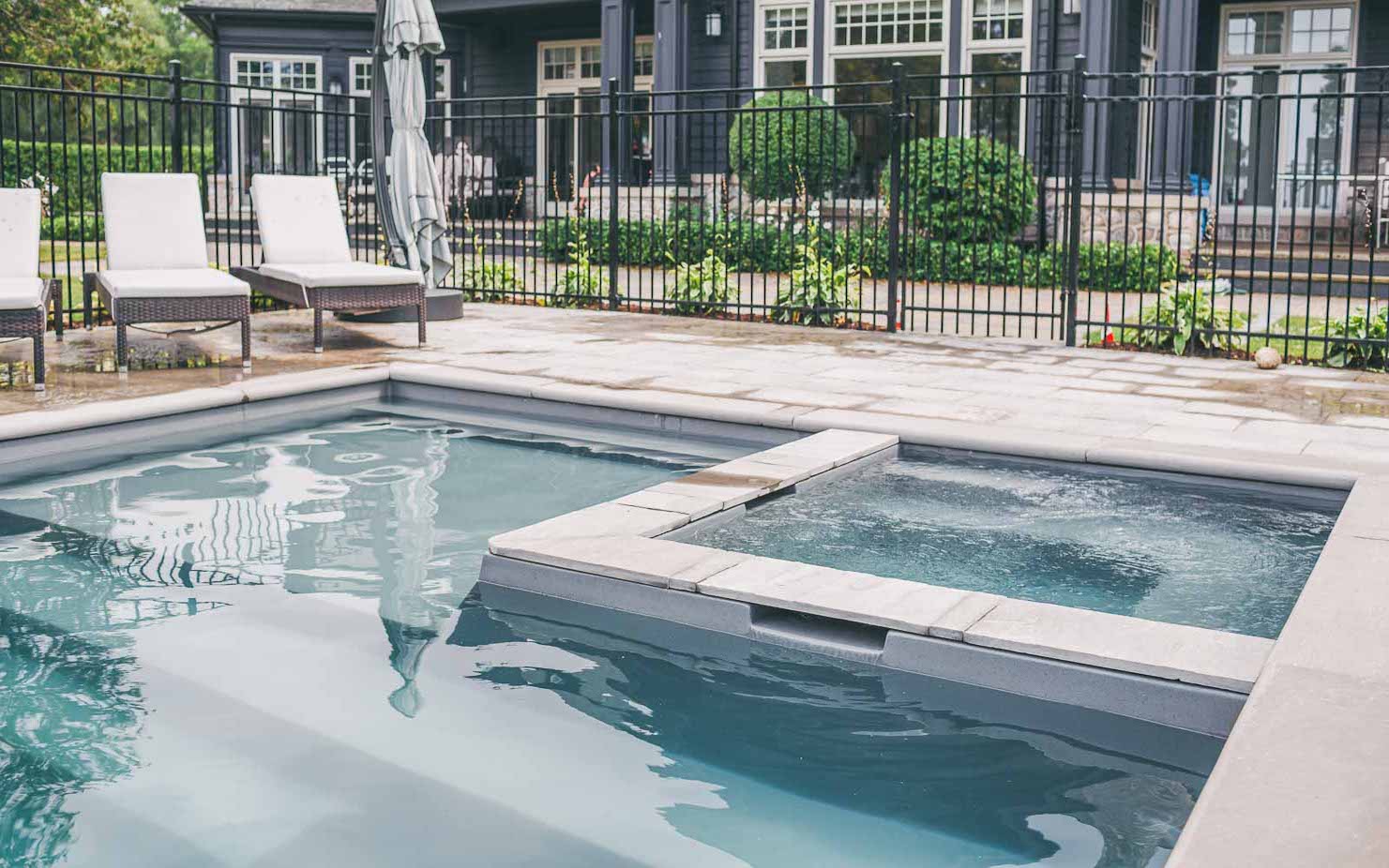Fibreglass pools have become increasingly popular in the pool industry. But, as with any trend, misconceptions have followed suit. One myth that seems to be prevailing is the perceived high cost of maintaining fibreglass pools. But is this truly the case? The purpose of this blog post is to sift through the hearsay, debunk these misconceptions, and provide you with an accurate picture of what it actually costs to maintain a fibreglass pool.
Explaining Fibreglass Pools
Let’s begin by understanding what fibreglass pools are. Made from fibreglass reinforced plastic, these pools are molded into a basin shape and then installed in an excavated site. The popularity of fibreglass pools is on the rise, with key selling points being their durability and ease of installation. And, unlike their concrete counterparts, they don’t require periodic resurfacing, reducing long-term maintenance costs.
Fibreglass Pools Require Costly Repairs

There’s a common belief that fibreglass pools are prone to expensive repairs. This myth is far from the truth. They are renowned for their durability and resistance to leaks and cracks. The repairs are infrequent and often minor, hence, less costly than most believe. Plus, fibreglass pools usually come with a lengthy warranty, providing a safety net for unexpected repair costs.
High Chemical Costs
The second myth we’ll tackle is the perceived high chemical costs associated with fibreglass pools. The reality is, maintaining the water chemistry in a fibreglass pool is no more expensive than with other types. In fact, it can be even cheaper. Fibreglass doesn’t interact negatively with pool chemicals, unlike some other materials, meaning you’ll use fewer chemicals, leading to reduced costs. This myth, like our first, crumbles under scrutiny.
Excessive Cleaning Expenses
Some individuals believe that this type requires expensive and labor-intensive cleaning. However, thanks to their smooth and non-porous surfaces, fibreglass pools resist algae growth, which significantly simplifies the cleaning process. Consequently, cleaning expenses for these types of pools are generally low, and you can save even more by using cost-effective cleaning tools and following a consistent cleaning schedule. A simple fibreglass pool Sydney Google search can tell you if cleaning is expensive or not in the land down under.
Energy-Intensive Equipment
Many people think that fibreglass pools need energy-intensive equipment, leading to higher electricity bills. But in reality, the type of pool doesn’t dictate the energy usage of your equipment—your choice of equipment does. If you opt for energy-efficient pumps and heaters, you’ll have a significant positive impact on your energy bills. So, choosing fibreglass pools doesn’t automatically lead to a higher energy cost.
Expensive Water Usage

A common myth about fibreglass pools is that they significantly increase your water bills. This belief, however, doesn’t hold water (pun intended!). In fact, the water usage of a pool isn’t primarily dictated by its construction material but rather depends on individual habits. For instance, how frequently you use it and the type of maintenance tasks you perform can have a substantial impact on water consumption.
A key point to remember is that evaporation can be a major cause of water loss in pools. Using a cover, especially during hot, dry weather or when the object isn’t in use, can greatly minimize evaporation. By adopting such simple measures, you can ensure that your water bills remain well within your budget, debunking the myth that fibreglass pools necessitate excessive water usage.
Costly Maintenance Contracts
One myth that often deters potential pool owners is the belief that fibreglass ones require costly ongoing maintenance contracts. This couldn’t be further from the truth. Fibreglass pools are designed with user-friendliness in mind, and routine maintenance tasks can easily be performed by the pool owner themselves. These tasks can include regular cleaning, water testing, and adjusting chemicals as needed.
While professional services may be useful for tackling specific or complex maintenance tasks, these services are sporadic rather than continuous. Consequently, they do not necessitate long-term contracts. Understanding the reality of fibreglass pool maintenance can help you avoid unnecessary expenses and enjoy your water time without undue financial stress.
Cost-Effective Maintenance Tips for Fibreglass Pools
Having debunked the myths surrounding fibreglass pools, it’s time to offer some practical maintenance tips that can further minimize expenses. Maintenance doesn’t have to be an expensive ordeal. Consistent and routine cleaning can prevent the build-up of algae and debris, reducing the need for costly professional clean-ups.
Efficient use of equipment, like running your pool pump during off-peak hours when electricity rates are lower, can help you cut costs further. Additionally, proper management of water chemistry is crucial. Maintaining the right balance of chemicals not only keeps the water safe and inviting but also prevents potential damage to the pool structure and equipment, saving you repair or replacement costs. By adopting these cost-effective practices, you can ensure your pool remains in top-notch condition without draining your wallet.
Long-Term Cost Comparison

When you consider the long-term maintenance costs, fibreglass pools come out as the more economical option compared to vinyl or concrete ones. The primary cost factors for any pool type revolve more around local utility rates and individual maintenance practices, rather than the pool’s construction material.
Over time, fibreglass pools are likely to prove more cost-effective because they require less frequent repairs and fewer chemicals, thus reducing the overall operating expenses. Additionally, this type doesn’t require resurfacing like concrete ones, which can be a significant cost factor over the pool’s lifetime. Therefore, when comparing long-term maintenance costs, this type holds a distinct advantage, which can potentially save you a significant amount in the long run.
Additional Benefits of Fibreglass Pools
Beyond their cost-effectiveness, fibreglass pools have several other benefits. Their smooth, non-abrasive surface reduces the chances of scraping and injury, offering a safer swimming experience. They also resist staining and fading, ensuring long-lasting aesthetics and lower maintenance costs.
Conclusion
From the above, it’s clear that the myths about the high costs of maintaining fibreglass pools are largely unfounded. When the facts are laid out, they prove to be cost-effective in comparison to other types. So, if you’re considering installing a pool, don’t let misconceptions sway you—fibreglass pools could be the affordable and practical choice you’ve been looking for.




